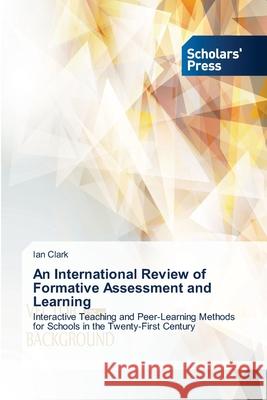An International Review of Formative Assessment and Learning » książka
An International Review of Formative Assessment and Learning
ISBN-13: 9783639662740 / Angielski / Miękka / 2014 / 296 str.
Formative assessment (FA) has become the platform for educational reform in many nations around the world. Chapter 1 briefly introduces the recent transitions which have created the circumstances for this burgeoning interest and describes the conceptions and processes that underpin FA. Chapter 2 engages in a detailed discussion on how the FA concept is perceived, particularly in the US. Chapter 3 highlights culturally responsive pedagogy. Chapter 4 emphasizes that FA is an interactive process requiring 'adaptive expertise'. Chapter 5 uses a case-study method, focusing on the experiences of more than 1500 schools in the Scottish region of the UK in order to explore the challenges and benefits in practical settings. Chapter 6 engages with the theoretical framework of FA before going on to focus on self-regulated learning in Chapter 7. Chapter 8 undertakes a unique scientific investigation and uncovers the neural basis for peer-learning and academic motivation. Chapter 9 builds on those findings by sharing the conceptual knowledge required to establish and sustain effective learning environments. The final chapter elaborates on some key questions about classroom assessment strategies.
Formative assessment (FA) has become the platform for educational reform in many nations around the world. Chapter 1 briefly introduces the recent transitions which have created the circumstances for this burgeoning interest and describes the conceptions and processes that underpin FA. Chapter 2 engages in a detailed discussion on how the FA concept is perceived, particularly in the US. Chapter 3 highlights culturally responsive pedagogy. Chapter 4 emphasizes that FA is an interactive process requiring adaptive expertise. Chapter 5 uses a case-study method, focusing on the experiences of more than 1500 schools in the Scottish region of the UK in order to explore the challenges and benefits in practical settings. Chapter 6 engages with the theoretical framework of FA before going on to focus on self-regulated learning in Chapter 7. Chapter 8 undertakes a unique scientific investigation and uncovers the neural basis for peer-learning and academic motivation. Chapter 9 builds on those findings by sharing the conceptual knowledge required to establish and sustain effective learning environments. The final chapter elaborates on some key questions about classroom assessment strategies.











